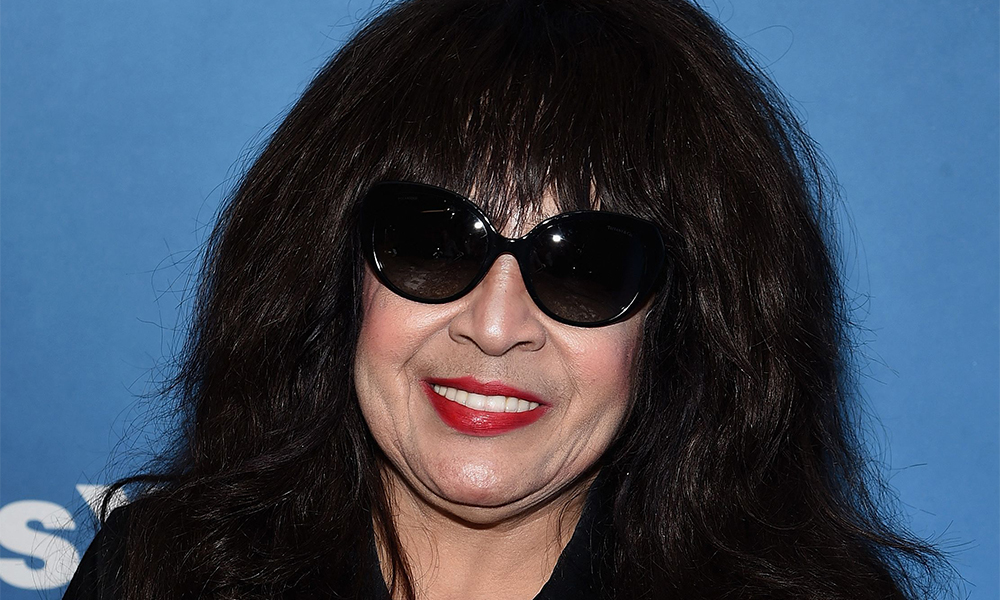Ronnie Spector - the cat-eyed rock ‘n’ roll singer who fronted the 1960s group the Ronettes, whose era-defining hits included the classic “Be My Baby” - died Wednesday. She was 78 years old. “Our beloved earth angel, Ronnie, peacefully left this world today after a brief battle with cancer,” read a family statement. “Ronnie lived her life with a twinkle in her eye, a spunky attitude, a wicked sense of humor and a smile on her face,” the statement continued. “She was filled with love and gratitude.” “Her joyful sound, playful nature and magical presence will live on in all who knew, heard or saw her.” Born Veronica Greenfield in New York’s Spanish Harlem on August 10, 1943, Spector was the daughter of an African-American and Cherokee mother and Irish-American father.
She formed the musical group that became known as the Ronettes with her sister Estelle Bennett and cousin Nedra Talley. They gained traction in the New York area with their soulful songs of young love, before signing in 1963 with the then-legendary producer Phil Spector - whom she later married. With their vampy, heavily lidded eyes, sky-high beehive hairstyles and skirts cut above the knee, the Ronettes skyrocketed to global fame, redefining girl group glamor with a seductive edge.
They delivered a string of hits during their early-1960s heyday, including “Baby, I Love You” and “(The Best Part of) Breakin’ Up,” along with the beloved “Be My Baby” that in 1999 was inducted into the Grammy Hall of Fame. “Be My Baby” is oft-cited as emblematic of Phil Spector’s dense, dramatic “Wall of Sound” production style, a technique that backed pop music with multiple tracks of lush instrumentation including brass and strings, giving rock songs the air of symphonies.
The iconic song soundtracked the title sequence of the revered 1987 film “Dirty Dancing,” and Martin Scorsese also used it to open his 1973 film “Mean Streets.” For Beach Boy Brian Wilson, “Be My Baby” was an obsession. “I was driving and I had to pull over to the side of the road - it blew my mind,” went Wilson’s story of his first listen, according to The New York Times. “It was a shock.” “I started analyzing all the guitars, pianos, bass, drums and percussion,” he said. “Once I got all those learned, I knew how to produce records.”
Influence ‘indelible’
Along with the Supremes, the Ronettes were among the period’s quintessential acts, and the only girl group to tour with the Beatles. Inducting the trio into the Rock and Roll Hall of Fame in 2007, Keith Richards of The Rolling Stones recalled opening for the Ronettes in the 1960s. “They could sing all their way right through a wall of sound,” Richards said. “They didn’t need anything. They touched my heart right there and then and they touch it still.” The Ronettes broke up in 1967 following a European concert tour. In 1968, Ronnie married Phil Spector, who in 2009 was jailed for murder. The pair divorced in 1974, and in her autobiography, the singer chronicled years of horrifically abusive behavior perpetrated by her ex, who died in 2021.
Following the breakup of the Ronettes, Ronnie Spector continued a solo career, which included a number of collaborations with artists such as Eddie Money and Bruce Springsteen’s E Street Band. But even as she toured on her own, the Ronettes hits were still dear to her heart.
“I love ‘em. I’ve never not sung ‘Be My Baby,’ or ‘Walking in the Rain,’ or ‘Baby, I Love You.’ I would never disappoint my audience like that,” she told Rolling Stone in 2016. In 2006, she dropped “Last of the Rock Stars,” an album that included features from Richards and Patti Smith. On Wednesday, rocker Joan Jett paid tribute to Spector, calling her “the sweetest person you could ever know.” “And her mark on rock and roll is indelible.” “I loved her voice so much,” wrote Wilson of his friend and influence. “This just breaks my heart.” “Ronnie’s music and spirit will live forever.”— AFP










